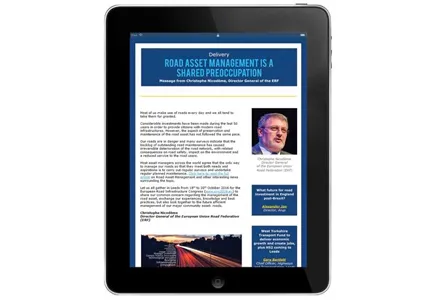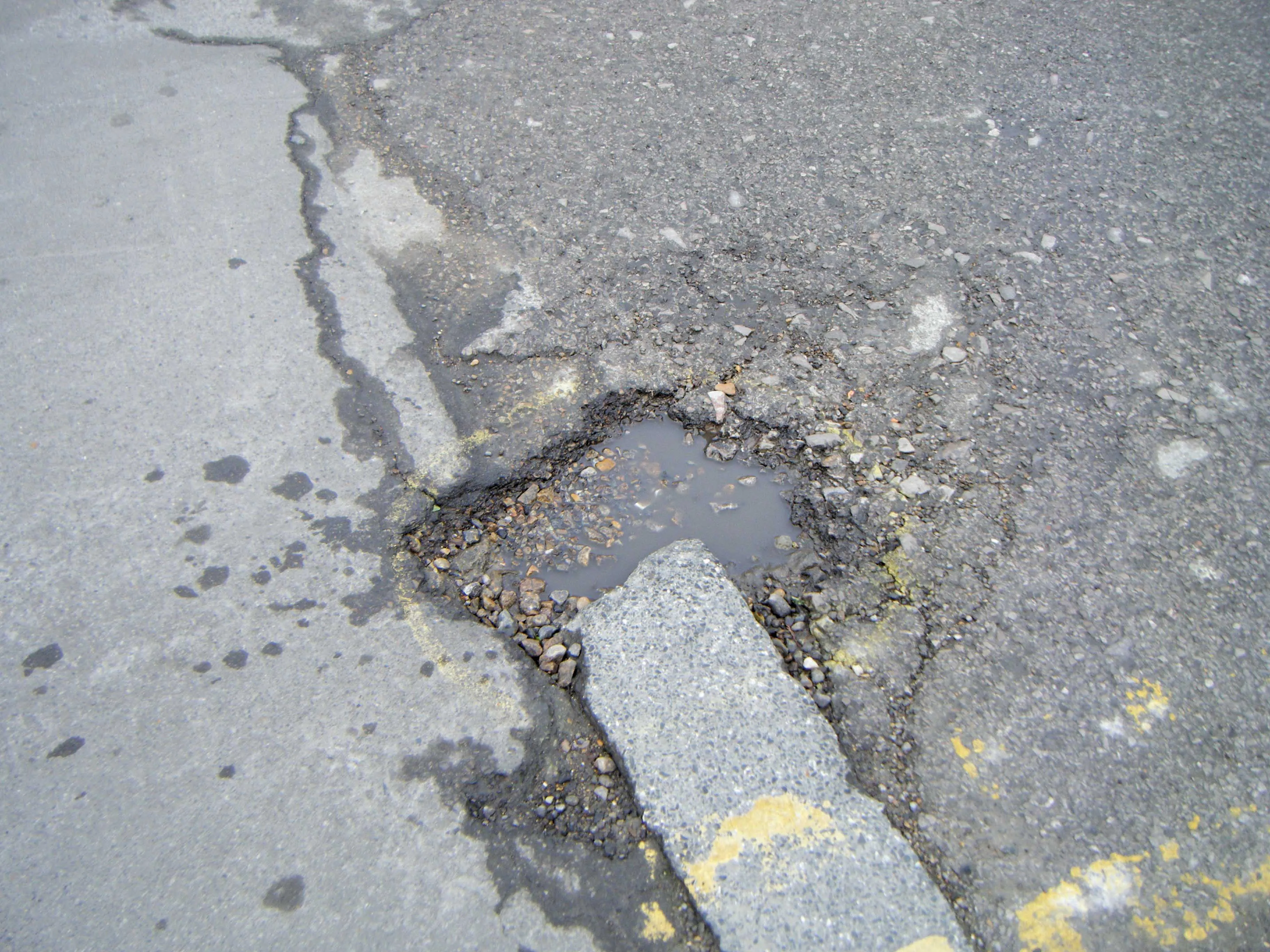David Quarmby, one of the United Kingdom’s most influential and experienced highways and transport senior executives, has been confirmed as a keynote speaker at the European Roads Infrastructure Congress – ERIC 2016 - in the autumn.
Quarmby has had a long career in policy, planning, management and research in UK transport, with 39 years’ board-level experience in government, public agencies and the private sector, including London Transport and the retail food giant Sainsbury’s.
Most recently he has b
July 26, 2016
Read time: 3 mins

David Quarmby, one of the United Kingdom’s most influential and experienced highways and transport senior executives, has been confirmed as a keynote speaker at the European Roads Infrastructure Congress – ERIC 2016 - in the autumn.
Quarmby has had a long career in policy, planning, management and research in UK transport, with 39 years’ board-level experience in government, public agencies and the private sector, including London Transport and the retail food giant Sainsbury’s.
Most recently he has been working on the Major Roads for the Future project for the Rees Jeffreys Road Fund. The two-year project was commissioned in late 2014 to help political leaders and transport professionals develop a long-term vision – to 2040 – for the role and evolution of the major road network in England.
Quarmby will examine this body of work as part of his presentation at ERIC 2016, to be held in Leeds, a city at the heart of the UK’s Northern Powerhouse Corridor, between the 18th and 20th of October. He will explain alternative funding options for governments and local authorities.
ERIC 2016 will be the most significant road infrastructure event this year. The programme is firming up with high level industry speakers and exhibition space is rapidly filling up. Delegates from across Europe and beyond are booking their place to ensure an “early bird” rate for the event.
It will also be this year’s networking event because of the congress’s extensive social programme, including a reception at the iconic Leeds Civic Hall.
The event will showcase the best of the UK specialist Road Marking sector as well as seek to position the UK at the centre of defining policy across Europe.
More information is available by %$Linker:2 External <?xml version="1.0" encoding="utf-16"?><dictionary /> 0 0 0 oLinkExternal clicking here Visit www.eric2016.eu website false http://www.eric2016.eu/ false false %>.
You can also follow the latest talk about ERIC 2016 on %$Linker:2 External <?xml version="1.0" encoding="utf-16"?><dictionary /> 0 0 0 oLinkExternal twitter Visit Twitter page false http://twitter.com/ERICLeeds16 false false %>.
The event is taking place at a time when the UK government is taking the lead in adopting innovative management and financing models for the delivery of road infrastructure. The recent establishment of8100 Highways England as an independent body with a ring-fenced multi-annual budget is such an example.
The 2016 event will bring together policy makers, academics, research institutes, road authorities and industry representatives from across the continent to explore the following three major themes:
• Delivery of Road Infrastructure: how can both the UK and Europe improve its delivery model in a way that enables road authorities to ask for better solutions, provides industry with more incentives for innovation and road users with an optimal use of public resources
• Road Safety: in view of the recent slowdown in fatality reduction figures across the UK and the wider EU, how can the main players involved in the road infrastructure sector work better together in order to identify practical solutions that enable Europe to achieve its target of a 50% cut in road fatalities
• Adaptation of road infrastructure in view of technological changes: innovations in vehicle technologies and the road infrastructure itself will mean that the road of the future will differ significantly to what it is today. Among others, the theme will examine the challenges posed by road automation for the road infrastructure sector and the role of roads in Europe's future socio-economic model in view of innovations such as energy harvesting infrastructure.
Quarmby has had a long career in policy, planning, management and research in UK transport, with 39 years’ board-level experience in government, public agencies and the private sector, including London Transport and the retail food giant Sainsbury’s.
Most recently he has been working on the Major Roads for the Future project for the Rees Jeffreys Road Fund. The two-year project was commissioned in late 2014 to help political leaders and transport professionals develop a long-term vision – to 2040 – for the role and evolution of the major road network in England.
Quarmby will examine this body of work as part of his presentation at ERIC 2016, to be held in Leeds, a city at the heart of the UK’s Northern Powerhouse Corridor, between the 18th and 20th of October. He will explain alternative funding options for governments and local authorities.
ERIC 2016 will be the most significant road infrastructure event this year. The programme is firming up with high level industry speakers and exhibition space is rapidly filling up. Delegates from across Europe and beyond are booking their place to ensure an “early bird” rate for the event.
It will also be this year’s networking event because of the congress’s extensive social programme, including a reception at the iconic Leeds Civic Hall.
The event will showcase the best of the UK specialist Road Marking sector as well as seek to position the UK at the centre of defining policy across Europe.
More information is available by %$Linker:
You can also follow the latest talk about ERIC 2016 on %$Linker:
The event is taking place at a time when the UK government is taking the lead in adopting innovative management and financing models for the delivery of road infrastructure. The recent establishment of
The 2016 event will bring together policy makers, academics, research institutes, road authorities and industry representatives from across the continent to explore the following three major themes:
• Delivery of Road Infrastructure: how can both the UK and Europe improve its delivery model in a way that enables road authorities to ask for better solutions, provides industry with more incentives for innovation and road users with an optimal use of public resources
• Road Safety: in view of the recent slowdown in fatality reduction figures across the UK and the wider EU, how can the main players involved in the road infrastructure sector work better together in order to identify practical solutions that enable Europe to achieve its target of a 50% cut in road fatalities
• Adaptation of road infrastructure in view of technological changes: innovations in vehicle technologies and the road infrastructure itself will mean that the road of the future will differ significantly to what it is today. Among others, the theme will examine the challenges posed by road automation for the road infrastructure sector and the role of roads in Europe's future socio-economic model in view of innovations such as energy harvesting infrastructure.







